
Going Straight (Fletch lives!)
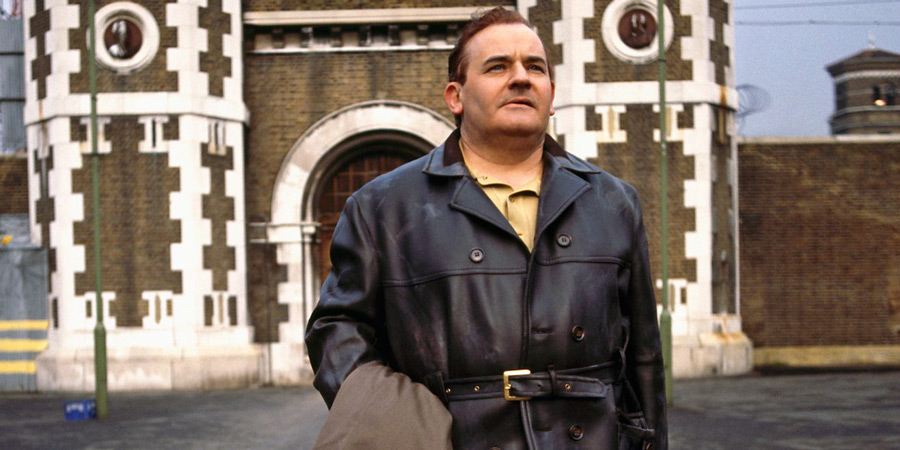
Have you ever wondered what happens to our favourite sitcom characters after the final curtain falls? Did Basil and Sybil survive the final climactic discovery of a live rat on the premises of Fawlty Towers? Did Tom and Barbara manage to keep on living the good life into the Eighties? In most cases, we never get to find out.
Happily, in the case of Slade Prison's most famous inmate, Norman Stanley Fletcher (Ronnie Barker), we soon got a definite answer. Within a year of Porridge coming to an end, viewers got a chance to catch up with Fletch following his release via a brand new sitcom sequel. Going Straight was once again written by Dick Clement and Ian La Frenais and ran for one series of six episodes between February and April 1978.
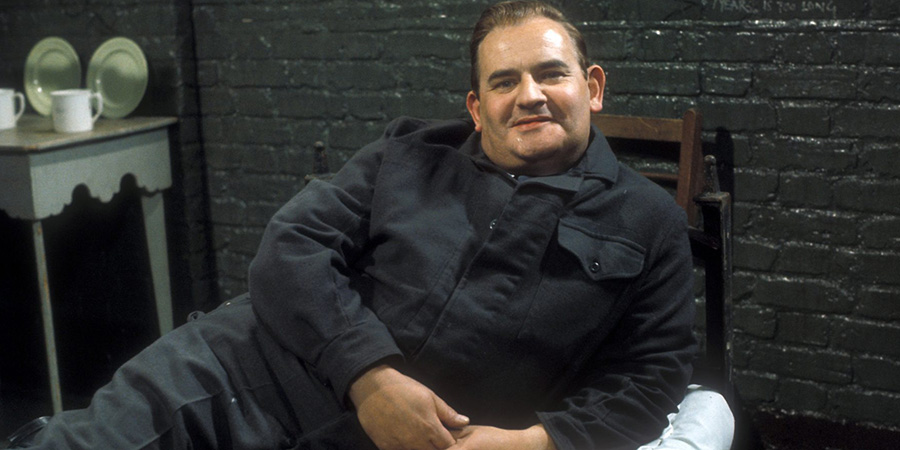
It had been Ronnie Barker's decision to bring Porridge (1974-77) to an end. "Ronnie just didn't want to be stuck in the one character," said producer Sydney Lotterby. "He didn't want people saying, 'Oh Ronnie Barker, he's that prisoner.'" After three series and 21 episodes, Porridge had been an enormous success and Clement and La Frenais would have been happy to continue. But Barker feared becoming typecast. He was keen to resume his successful partnership with Ronnie Corbett but also to return to miserly northern shopkeeper Arkwright in Open All Hours, a series which had emerged from the same 1973 Seven Of One series of pilots which had spawned Porridge. But Roy Clarke's sitcom had not really taken off yet. Series 1 had aired in 1976 but it would not return for a second series until 1981. In 1977, Arkwright and Granville's future still looked uncertain. It was at this point, that Clement and La Frenais suggested a Porridge sequel.
The two writers already had considerable experience where sitcom sequels were concerned. Their Whatever Happened To The Likely Lads? (1973-74) had built on the foundations left by the original mid-Sixties series (simply called The Likely Lads) by exploring how Bob and Terry's initially quite similar lives had diverged dramatically in the ensuing decade. The end result is now usually considered far superior to the original. Could a show following Fletcher after his release from prison pull off the same trick?
The short answer is, no. But Going Straight was certainly a decent effort. It is also essential viewing for anyone who enjoyed Porridge.
The show begins with a title sequence which is almost an exact reversal of the one for Porridge: we now get to see Fletcher being released from prison rather than going in. Whereas the opening titles of Porridge were unusually music-free and punctuated only by the chilling sound of prison doors being slammed shut and locked alongside the echoing words of Fletcher's judge (also voiced by Barker) delivering his final sentence, in this case, we get a cheerful theme tune ("I'm going straight I am, Straight as an arrow...") sang by Barker himself. EMI released the song as a 7-inch single at the time along with a B-side track called The String Bean Queen.
Having seen Fletch released, the first episode, Going Home, then jumps back slightly to Fletch's final hours in prison. Talking to fellow convict McLaren (Porridge regular Tony Osoba), Fletcher reflects on the end of his most recent spell inside: "three years, eight months and four days" of wasted life. More poignantly, he reflects that now, as a forty-five-year-old man, he has thus far spent one week of every month of his life "in some kind of Nick or another." For the first time in his life, Fletcher is determined to "go straight" and thus avoid another spell inside courtesy of "her Majesty's pleasure." But it will be no easy feat.
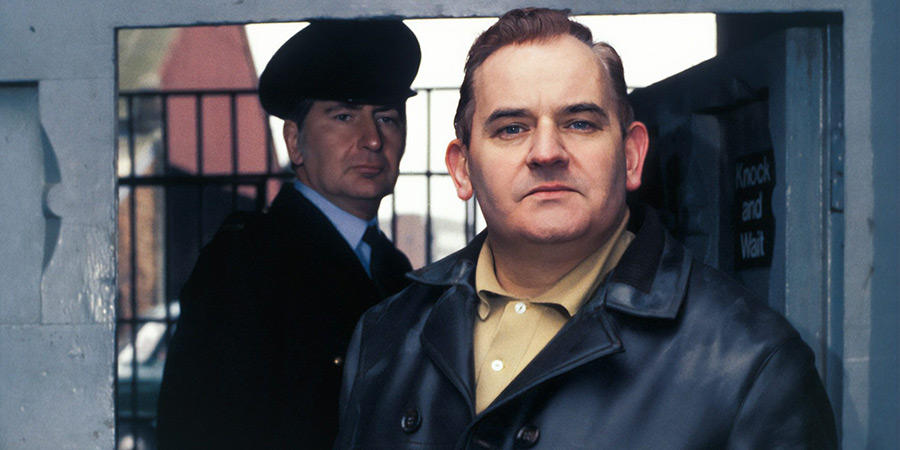
Unpleasant characters, like the prison guard Mr Kirby (Milton Johns) who physically lets Fletcher out, seem to be almost willing Fletcher to fail, while his conversation with McLaren reveals some of their other old colleagues are already struggling to make it in the outside world. We will soon see how Fletcher will be confronted by the prospect of unemployment at a time when a million people across the UK are jobless already. Fletcher will also be subject to harassment from a police force who are generally expecting him to reoffend and the unwelcome attention of old contacts from the criminal world who are actively keen to encourage him to do so. Can Fletcher succeed in Civvy Street or is he destined to return to jail? This is the central question at the heart of Going Straight.
"The idea of the show was to see whether he could stay on the straight and narrow, whether he could adapt," said writer Dick Clement. "It was a good theme because so many people coming out of prison can't get a job, people don't want to know and eventually they go off the rails."
The first episode of Going Straight is easily the best. Having been released, Fletcher boards a train to London where he almost immediately runs into his old nemesis, Mr Mackay (Fulton Mackay) dressed in a business suit as he prepares to attend a job interview. With Mackay and Fletcher both travelling together, the episode echoes the original pilot for Porridge, Prisoner and Escort, from 1973. This time, however, they are able to share a drink. Fletcher is horrified by the impact of inflation: having been prepared to spend 10p, he is shocked to discover a pint of beer now costs 26p! Although MacKay is initially reluctant to accept it, he and Fletcher are able to speak together as equals for the first time. During the course of Going Home both ex-convict and guard narrowly escape serious misfortune. Mackay also learns an important lesson and the two men part company forever on reasonable terms.
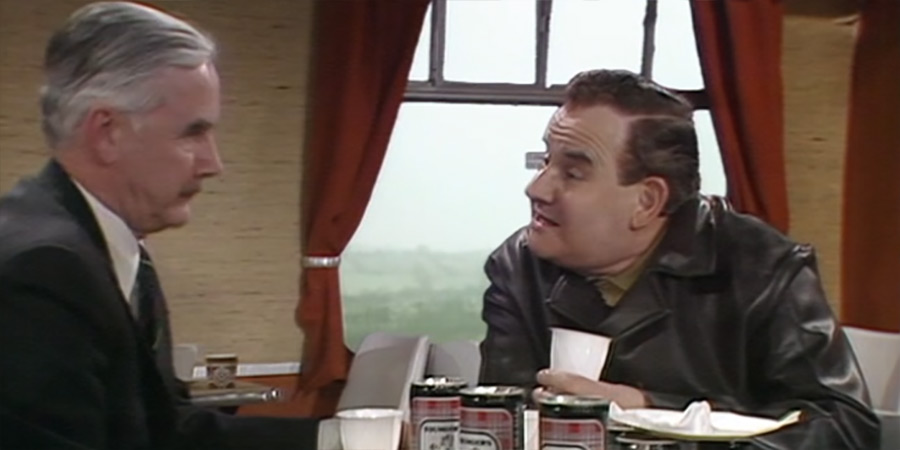
Good though it is, Going Home is not a typical episode. Episode 2, Going To Be Alright, sees Fletcher settling into his new life: reporting to Mrs Shirley Chapman (Rowena Cooper) at the parole board and living in Muswell Hill with his grown-up daughter, Ingrid (Patricia Brake), and his teenaged son, Raymond (Nicholas Lyndhurst). We soon learn Fletcher's wife, Isobel, has left him for another man. This is, in fact, not news: Ingrid had already informed her father of this in the 1974 episode of Porridge, Men Without Women, although Fletch seems to have concealed the information from his parole board. Ingrid is now in a relationship with Fletcher's old cellmate Lennie Godber (Richard Beckinsale), who is now also free and employed as a long-distance lorry driver. This remains the essential set-up for the rest of the series.
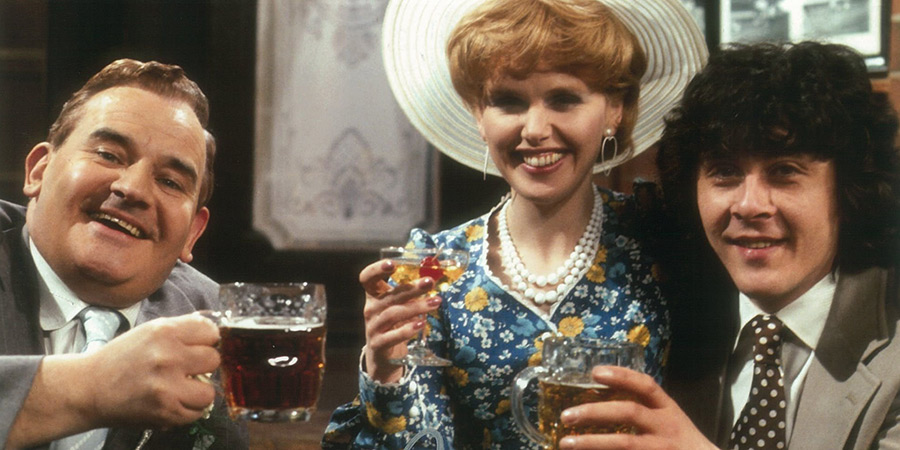
Having appeared three times in Porridge, during which Ingrid's presence aroused considerable interest from the other inmates during her visits to her convict father, Patricia Brake relished working with Barker and Beckinsale again. "The amazing thing about Ronnie was he was able to grow what he was given," Brake, who died in 2022, remembered. "Watching him play with the script was wonderful. He could develop a joke so that it went on much longer because he was just so clever at it. And what I loved about Richard was his total reality. He didn't change at all when the camera started, there was no feeling that anything had changed. He was who he was and that's the way he played it. He wasn't theatrical or actorly in any way. He had a lot of charm."
Playing Fletcher's son, Nicholas Lyndhurst was sixteen at the time of Going Straight. He would begin playing Adam (the teenaged son of Wendy Craig's Ria) in Butterflies later that same year before taking on his most famous role as Rodney "the plonker" Trotter in Only Fools And Horses three years after that. But he is not the only Ghost of Sitcoms Yet To Come who can be spotted in Going Straight. Mr McEwan, the liberal-minded hotelier with an imperial background who gives Fletch an opportunity for work, is played by David Swift, who later played the bewigged, hard-drinking newsreader Henry Davenport in Drop The Dead Donkey. Nigel Hawthorne also crops up as Worm Wellings in the penultimate episode, Going Going Gone, two years before he landed his breakthrough role as the conniving civil service mandarin Sir Humphrey in Yes Minister.
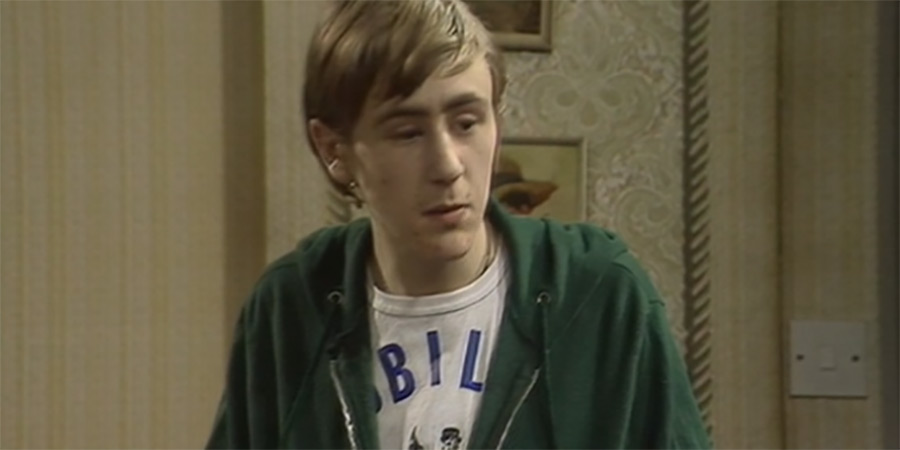
Although less associated with the world of sitcom, a young Pete Postlethwaite also crops up in one episode as an unfriendly cop.
The final episode, Going Off The Rails, aired on 7th April 1978. It was a memorable occasion: with Lennie and Ingrid getting married, Fletch faces a final serious dilemma as a tempting criminal opportunity offers him a potentially tantalising opportunity to pay for the wedding. The series ended on a high, having received excellent viewing figures.
Barker, Beckinsale and Mackay all reunited for a final dose of Porridge with the production of the film version of the sitcom early the next year. Going Straight picked up a BAFTA for Best Situation Comedy in March 1979. It was to prove a sombre day and Barker looked visibly shocked and upset as he picked up the award. The broadcast had been completely overshadowed by the news of the sudden death of Richard Beckinsale three days earlier.
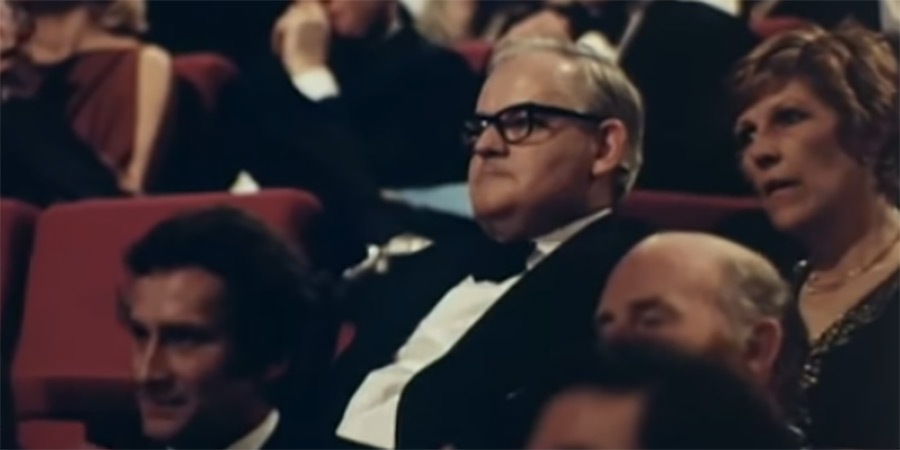
Going Straight never returned for a second series. While it remains to be seen whether the show could have survived without Beckinsale, his death was not the official reason the series ended. Some accounts suggest Barker himself never intended to do more than one series. Yet Barker himself seems to contradict this when interviewed about Going Straight in his authorised biography: "Most people said it didn't work. I don't know why," Barker said. "It had Godber in it and that was perfectly legitimate because he had met him in prison; it just put Fletch in different situation. But it didn't seem to go well with the high-ups in the Beeb. Its fate is influenced not just by the public but by the people who decide upstairs. I don't know who decided to pull it, but they did."
Enjoyable as it, there is undeniably something slightly unsatisfactory about Going Straight. Barker is brilliant as ever and we see a number of interesting scenarios play out: Fletcher helping a young woman escape potentially slipping into a life of crime, for example. But the character just doesn't work as well outside the prison environment. He works best as a rebel doing his bit to survive in the face of the authorities. The show also lacks the strong supporting cast of Porridge. Fletch's parole officer, Mrs Chapman, is fine but is never allowed to develop in the way Mackay or Barraclough were.

As Lotterby says: "Ronnie didn't want to do any more Porridge. But he wanted to extend it. Sadly that didn't work, probably because, despite it being the same characters, the public appreciation just wasn't quite the same, they wanted to see Ronnie in prison. It got a BAFTA, but after Porridge it was second-best."
Going Straight has not been repeated as much as Porridge and has never achieved the same level of critical acclaim. Barker returned to the character of Fletcher once more in the 2003 comedy docudrama Life Beyond The Box in 2003, three years before his own death. He was joined by a number of surviving cast members including Patricia Brake, Peter Vaughan and Tony Osoba.
Ultimately, Going Straight remains a fascinating piece of British comedy history. The fact that it falls short of the high standard set by its illustrious predecessor, should not be held against it. In the case of Porridge, we are, after all, talking about one of the finest British sitcoms ever made. Going Straight continues the Porridge story while doing nothing to tarnish the memory of the original. If you've never seen it before, go straight to iPlayer and watch it. It's well worth spending a few hours inside for.
Where to start?

Episode 1 - Going Home
It's hardly a typical episode: Ingrid and Godber aren't even in it. But Fulton Mackay's masterful performance elevates this immeasurably. His easy rapport with Barker as these two long term adversaries are reunited in the outside world makes this unmissable.
Help British comedy by becoming a BCG Supporter. Donate and join us in preserving, amplifying and investing in comedy of all forms, from the grass roots up. Advertising doesn't cover our costs, so every single donation matters and is put to good use. Thank you.
Love comedy? Find out moreGoing Straight

After three series and two Christmas specials of Porridge, Fletcher finally gets released from prison in Going Straight.
Upon leaving prison, Fletch has to deal with his family and his old cell-mate Lenny Godber. Will Fletch take to life on the outside - or will he yearn for the company of thieves and screws?
This DVD brings the entire first-and-only double-BAFTA winning series.
First released: Sunday 3rd October 2004
- Distributor: 2 Entertain
- Region: 2
- Discs: 1
- Catalogue: BBCDVD1460
![]() Buy and sell old and new items
Buy and sell old and new items
Search for this product on eBay
BCG may earn commission on sales generated through the links above.

